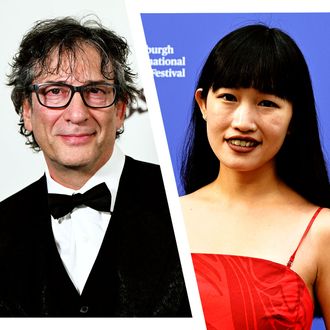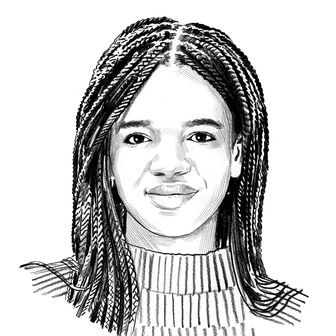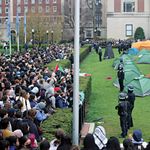
The Hugo Awards are facing a controversy of intergalactic proportions. According to emails leaked on February 14, the volunteer body that administered the 2023 Hugo Awards appeared to have directly engaged in self-censoring the nominees over political concerns about the host country, China. The emails allege members of the Hugo administration team succeeded in keeping certain books off-ballot because they wanted to operate under Chinese laws related to content and censorship, Hugo-nominated sci-fi author Jason Sanford and Hugo-winning fan writer Chris M. Barkley wrote in a special report on February 14. “In addition to the regular technical review, as we are happening in China and the *laws* we operate under are different … we need to highlight anything of a sensitive political nature in the work,” Dave McCarty, division head of the Hugo Awards Selection Executive Department, wrote in an email dated June 5, 2023. Talk about the call coming from inside the house. Following a round of voting that left four writers, including former Hugo Award winner Neil Gaiman and Babel’s R.F. Kuang, out of competition during the latest awards season, fans are accusing the Hugos of being book-award thieves.
Considered one of the most prestigious awards in the sci-fi and fantasy realm, the Hugos dole out fan-voted honors to books, TV, film, and video games at the annual World Science Fiction Convention. Anyone who is a member of the current or previous Worldcon can submit five nominations per category and vote in the final ballot. Even the location of each year’s Worldcon is based on majority opinion. Last year’s controversial event landed in Chengdu, China, on October 21, 2023, after fans voted for the host city two years prior. “There were concerns that a couple thousand people from China purchased memberships [in the World Science Fiction Society] that year to vote for Chengdu,” Sanford told Esquire in February. “It was unusual, but it was done under the rules.” Below, everything we know about the censorship controversy threatening to destabilize the institution, from the disqualified authors’ responses to the fallout within the sci-fi and fantasy community.
What ignited the Hugo Awards controversy?
When the Hugos took place in Chengdu last October, it wasn’t immediately clear that the something was amiss. Shit hit the fan months later, when the awards committee finally released its long-awaited nominating statistics. The volunteer body typically releases the numbers the same evening as the ceremony, or within days of the event, but for this year, the stats didn’t arrive until 91 days after the event, per Esquire. Finally released on January 20, 2024, the reports showed that Kuang’s Babel, an episode of Gaiman’s The Sandman, Iron Widow novelist Xiran Jay Zhao, and fan writer Paul Weimer all received more than enough preliminary votes to be finalists for awards, yet an asterisk denoted each of their works as “ineligible” for award consideration.
McCarty antagonized critics in multiple Facebook comments that day amid a fan uproar over the artists’ apparent disqualification. He first shared last year’s nominating statistics to the public and derisively attempted to shield the Hugos from criticism. “Are you slow?” he responded to a comment asking him why certain works were deemed ineligible based on the World Science Fiction Society’s constitution. “Clearly you can’t understand plain English in our constitution,” he wrote to another, per Esquire.
Speculation that the Chinese government played a role in censoring the votes grew. Comic-book writer Gaiman has previously voiced criticisms of the government for incarcerating writers. Both Kuang and Zhao were born in China and now live in the West, and their books tackle social issues in allegorical fantasy worlds. However, McCarty denied the notion in a Facebook post in the days following the release of the nominating-statistics release. “Nobody has ordered me to do anything …” he wrote per the Guardian on January 24. “There was no communication between the Hugo administration team and the Chinese government in any official manner.”
What exactly did the emails reveal?
Based on leaked information from committee member Diane Lacey obtained by Barkley and Sanford, the censorship occurred at the selection committee’s own behest. “It’s not necessary to read everything, but if the work focuses on China, taiwan, tibet, or other topics that may be an issue *in* China … that needs to be highlighted so that we can determine if it is safe to put it on the ballot (or) if the law will require us to make an administrative decision about it,” wrote McCarty, per Barkley and Sanford’s report.
In one email, the group considered Kuang’s Babel and Silvia Moreno-Garcia’s The Daughter of Doctor Moreau, noting that both works discuss China. Babel “has a lot about China. I haven’t read it, and am not up on Chinese politics, so cannot say whether it would be viewed as ‘negatives of China,’” Hugo Awards administrator Kat Jones said in one message, while Daughter talks “about importing hacienda workers from China. I have not read the book, and do not know whether this would be considered ‘negative.’” Only Daughter made it to the final ballot. Jones was the overall administrator of the 2024 Worldcon before resigning on February 14, according to a statement.
An email sent June 7, 2023, goes into detail about the concerns for the Best Fan Writer category, painstakingly summarizing details about potentially problematic authors’ mentions of China in tweets, articles, and, of course, their works. The dossier even dives into the authors’ travel history to countries that have issues with China. Weimer, who was ultimately deemed ineligible, was under scrutiny for what the committee thought to be a trip to Tibet — “Brief Twitter mention of Hong Kong and reference to Tianenmen [sic] Square” — and worries over what it means to host a Worldcon in Chengdu.
Weimer, who was up for Hugos in 2020, 2021, and 2022 in the Fan Writing category, told Barkley and Sanford he never even traveled to Tibet. “I was afraid that in the end this was going to come down to soft or hard or some kind of censorship once things started leaking out,” Weimer said in the report. “I mean, they came up with a dossier on all of us and went through stuff from ten years ago? I mean, I honestly think that the Hugo Committee are cowards. I would like to hope that if I was in the position of Dave McCarty and the others, I’d have simply said we can’t hold the awards under these conditions and just cancel the fucking things rather than going through political dossiers. This is the worst possible outcome.”
Zhao, who was deemed ineligible for the Best New Writer Award, was named for two possible issues: (1) their book “Iron Giant [sic] is described as reimaging [sic] the rise of Chinese Empress Wu Zetian;” (2) they are “described on Wikipedia as an ‘internet personality.’” Multiple other artists received scrutiny for China-related content in the emails, including Barkley, Sanford, Bitter Karella, O. Westin, Alex Brown, Camestros Felapton, Alasdair Stuart, Naseem Jamnia, and Sue Lynn Tan.
“We were told to vet nominees for work focusing on China, Taiwan, Tibet, or other topics that may be an issue in China and, to my shame, I did so,” Lacey wrote in a statement dated January 25, per Barkley and Sanford. “Understand that I signed up fully aware that there were going to be issues. I am not that naïve regarding the Chinese political system, but I wanted the Hugos to happen, and not have them completely crash and burn.”
How did the writers respond to their alleged censorship?
R.F. Kuang shared a statement on Instagram on January 22, calling the situation “embarrassing” overall. After clarifying to fans that she “did not decline a nomination, as no nomination was offered,” she offered a sharp criticism of the Hugos. “Until one is provided that explains why the book was eligible for the Nebula and Locus awards, which it won, and not the Hugos, I assume this was a matter of undesirability rather than ineligibility,” she wrote. “Excluding ‘undesirable’ work is not only embarrassing for all involved parties, but renders the entire process and organization illegitimate. Pity.” Zhao called for their followers to “make a fuss about this to get us some answers” after they got “disqualified for political reasons probably” in a video posted on social media February 1.
What’s next for the embattled Hugos?
Worldcon Intellectual Property, the nonprofit that runs the World Science Fiction Society, announced resignations in the immediate aftermath to the scandal on January 30, Publishers Weekly reported. Dave McCarty and board chair Kevin Standlee resigned from their respective positions, with the former censured for his public Facebook comments. Chengdu Worldcon administration member Ben Yalow, who co-chaired the 2023 event and was set to work on this year’s event in Glasgow, is no longer listed on the 2024 Glasgow staff page. He and his fellow co-chair Chen Shi were censured for their actions.
“I acknowledge the deep grief and anger of the community and I share this distress,” the current chair of Glasgow 2024, Esther MacCallum-Stewart, said in a statement on February 14. She added that the committee would be taking steps “to ensure transparency and to attempt to redress the grievous loss of trust in the administration of the awards.” While the upcoming Worldcon has apologized for the failings of the previous year’s convention, the 2023 iteration of the event has not directly apologized for its handling of the awards. Vulture reached out to the Hugos for comment.





